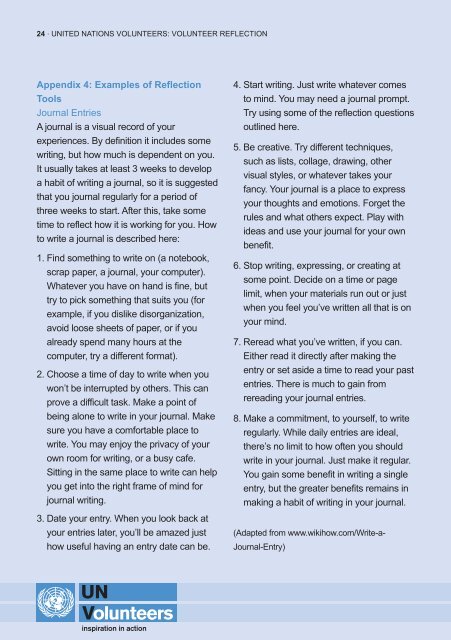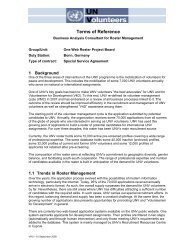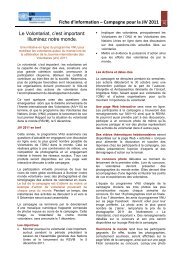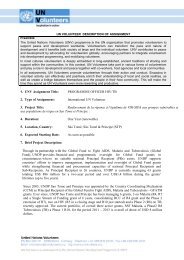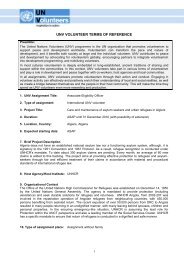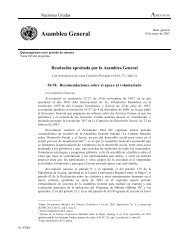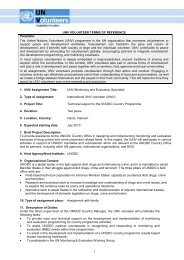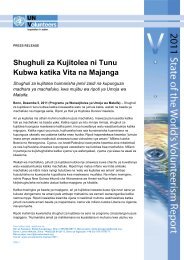Volunteer reflection - United Nations Volunteers
Volunteer reflection - United Nations Volunteers
Volunteer reflection - United Nations Volunteers
You also want an ePaper? Increase the reach of your titles
YUMPU automatically turns print PDFs into web optimized ePapers that Google loves.
24 . UNITED NATIONS VOLUNTEERS: VOLUNTEER REFLECTIONAppendix 4: Examples of ReflectionToolsJournal EntriesA journal is a visual record of yourexperiences. By definition it includes somewriting, but how much is dependent on you.It usually takes at least 3 weeks to developa habit of writing a journal, so it is suggestedthat you journal regularly for a period ofthree weeks to start. After this, take sometime to reflect how it is working for you. Howto write a journal is described here:1. Find something to write on (a notebook,scrap paper, a journal, your computer).Whatever you have on hand is fine, buttry to pick something that suits you (forexample, if you dislike disorganization,avoid loose sheets of paper, or if youalready spend many hours at thecomputer, try a different format).2. Choose a time of day to write when youwon’t be interrupted by others. This canprove a difficult task. Make a point ofbeing alone to write in your journal. Makesure you have a comfortable place towrite. You may enjoy the privacy of yourown room for writing, or a busy cafe.Sitting in the same place to write can helpyou get into the right frame of mind forjournal writing.3. Date your entry. When you look back atyour entries later, you’ll be amazed justhow useful having an entry date can be.4. Start writing. Just write whatever comesto mind. You may need a journal prompt.Try using some of the <strong>reflection</strong> questionsoutlined here.5. Be creative. Try different techniques,such as lists, collage, drawing, othervisual styles, or whatever takes yourfancy. Your journal is a place to expressyour thoughts and emotions. Forget therules and what others expect. Play withideas and use your journal for your ownbenefit.6. Stop writing, expressing, or creating atsome point. Decide on a time or pagelimit, when your materials run out or justwhen you feel you’ve written all that is onyour mind.7. Reread what you’ve written, if you can.Either read it directly after making theentry or set aside a time to read your pastentries. There is much to gain fromrereading your journal entries.8. Make a commitment, to yourself, to writeregularly. While daily entries are ideal,there’s no limit to how often you shouldwrite in your journal. Just make it regular.You gain some benefit in writing a singleentry, but the greater benefits remains inmaking a habit of writing in your journal.(Adapted from www.wikihow.com/Write-a-Journal-Entry)


